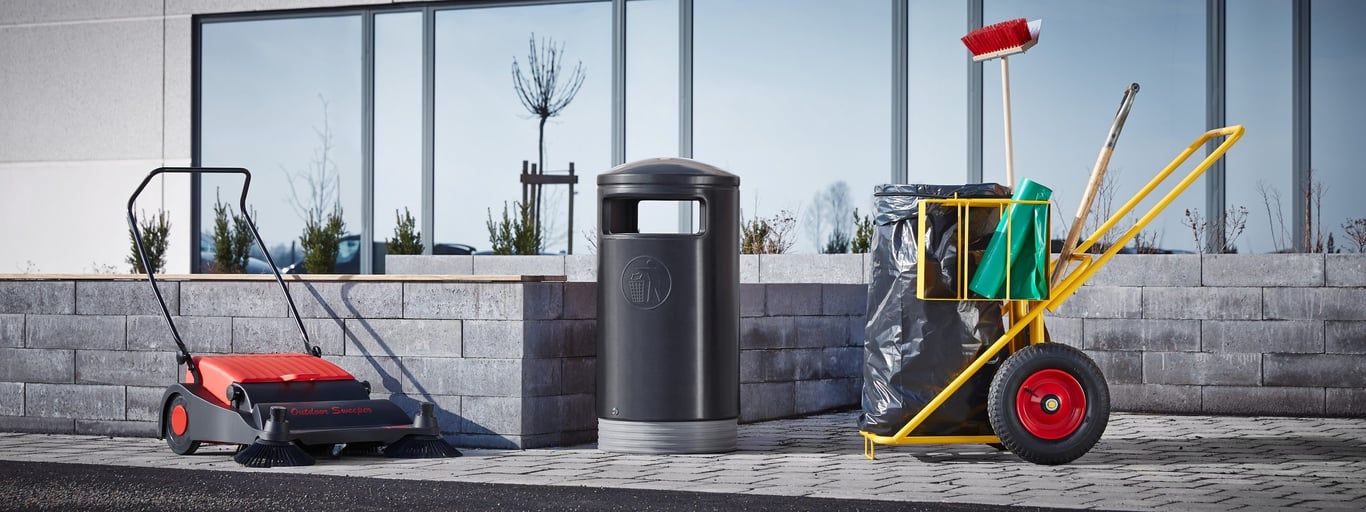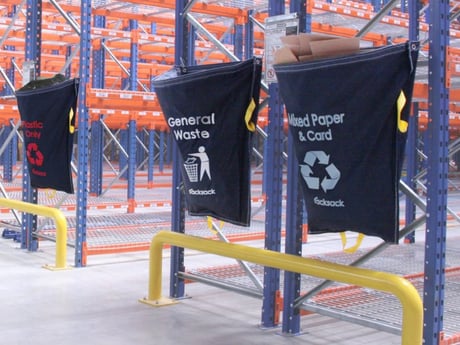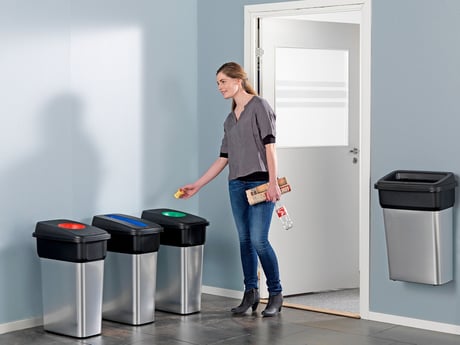- AJ Products UK
- Blog: Tips to Inspire Happiness at Work
- Tips & trends
- How to reduce and recycle waste at events
How to reduce and recycle waste at events

Large venues, such as stadiums and arenas, generate thousands of tonnes of rubbish each year. The large number of people in one place at one time results in a high volume of waste and potential recyclable materials.
Implementing an effective recycling scheme and running more sustainable events can save thousands of pounds a year in waste disposal costs, demonstrates environmental leadership and could help you attract a bigger audience.
How to get started
First of all, event organisers need to identify the most common waste streams and evaluate current disposal methods. Common types of waste are likely to include:
- Plastic bottles
- Paper
- Cardboard
- Glass (from behind food service areas)
- Food waste
- General waste
Then, set out your initial aims. There is no need for these to be overly complicated. For example, some achievable yet measurable aims could be to:
- Identify waste segregation systems to enable greater recycling
- Separate all food waste from general waste and combine with green waste for composting
- Collect all plastic and glass containers after events for recycling
Once you have set out your goals, there are several areas on which to focus in order to make your recycling scheme a success.
Restrict the waste coming into your venue
Most venues already restrict what items can be brought in and many do not allow outside food and drinks to be consumed on site. By restricting what comes in, you can fit your recycling containers with customised recycling signs to show which items can go in each bin. Make it clear to visitors before the event what items will be permitted into the venue. This information should be communicated on social media, in pre-event emails and on your website so that everyone is aware. Make sure you have large capacity waste and recycling bins at each entrance to collect any outside waste.
Make it easy for visitors
Inside the venue, it is important to place recycling bins next to general waste bins. If the bins are separate, people will use the most convenient one rather than the right one for their waste. Make sure that waste receptacles are visible by placing them in high traffic areas. Remember that people have just a couple of seconds to decide which bin to use so clear signs at eye level are essential; signs with pictures as well as text help people make a quick decision and avoid any language barriers.
Encourage fan participation
Encouraging visitor participation can be challenging. The venue needs to engage fans in efforts to reduce waste and lessen the environmental footprint. One of the most effective ways for sports venues to do this is by featuring the home team in marketing material: a video promoted on social media in advance of the game and shown on the big screen on match day will gain attention and make fans aware of the scheme. Recycling education can also be carried out by inserting notices in event programmes, displaying posters and billboards, putting clear signs on bins, and communicating where and why to recycle at the point of sale for concessions purchased on site.
Make sure vendors use recyclable or compostable materials
It is important to work closely with vendors and concessionaires as they will be responsible for a large amount of the venue’s waste. Make it part of your contract with vendors that they must use packaging and containers that can either be recycled or composted after use. Also ensure that they are recycling their behind-the-counter waste.
Don’t forget about areas outside the venue
Areas surrounding the venue should also be covered by your recycling scheme. Setting up recycling bins in the car park and surrounding area is an effective way of encouraging pre-and post-event recycling, and benefits the site by improving your standing among the local community.


